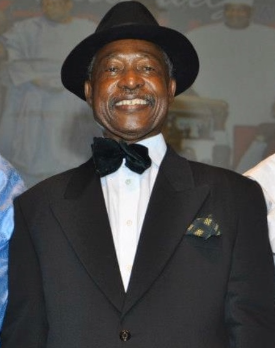AS you read these lines this morning, a book of essays is being launched at the Nigerian Institute for International Affairs in Lagos. It is in honour of Uncle Sam Amuka’s 80th birthday. Ever the self-effacing gentleman, Uncle Sam had emphatically told Lanre Idowu, who edited the book that he didn’t want any book or celebration of the birthday.
Thank God that Lanre and his team disobeyed the master this time around, to the glory of all Nigerians and especially all who have anything to do with the media. I think it is very important that we could celebrate the remarkably long life that Uncle Sam has lived and the impact that he has made on the evolution of Nigerian journalism, in over fifty years of direct engagement with our profession; this is without underestimating how his journalism also influenced and flowed into and with the social currents that mark our Nigerian lives in all the decades of his active and productive life.
Significance of journalism
I have deliberately chosen to underline our Nigerian lives, because the beauty and eternal significance of journalism is the way that it is interwoven with the social fabrics of society, in the manner that it reflects its evolution as well as providing some of the building blocks of that evolutionary process.
My fascination with Uncle Sam’s professional life is therefore a strand of my eternal love with the contested categories of socio-political existence of Nigeria. Almost imperceptibly but surely, Nigerians come from different backgrounds and in their active engagement in the social space, they help to build values that transcend the more divisive elements of our fault lines that political actors, various categories of intellectuals, from academia to those engaging the public space, often attempt to exploit to advance personal agendas.
The creation of a national social ethos is never without its accompanying contradictions, since by its nature the social space is a contested one. Sometimes, we might not acknowledge the distances we have covered and there could be reverses of the process, but the traditions of journalism help very much in creating and advancing the national social ethos and reinforcing values that citizens accept as part of the definitions of their citizenship.
Professionals like Uncle Sam Amuka have the advantage of a long life and therefore the opportunity to help calibrate the various phases of the development that I am talking about here.
Of course, it is no coincidence that Uncle Sam has practiced his journalism almost entirely in Lagos. The city has been at the heart of a very robust tradition of journalism from the middle of the nineteenth century. This was related to the role that the city has played in the vital historical currents that defined Nigeria.
It was Lagos that those who were freed from the Atlantic Slave Trade returned to, bringing a new consciousness that was formed in the New World of the Americas. Lagos became the city that drew some of the earliest educated people and visiting intellectuals and aspirant but often failed businessmen, who had attempted to participate in the legal and lucrative business in the Niger Delta but were squeezed out by colonial monopolies.
Combative journalism
They were an aspirant petty-bourgeoisie and were embittered as Professor Fred Omu noted in his remarkable study of Press and Politics in Nigeria. They turned to the media and helped to create a tradition of combative journalism which had the consequence of helping to forge a Nigerian consciousness even earlier than the political process which led to the emergence of Nigerian nationalism and the Nigerian state itself. And who could deny that Lagos has always been a social pacesetter, creating and spreading all forms of innovation, faster than they could be copied in the hinterlands?
The line can be drawn from John and Thomas Jackson and the fiery LAGOS WEEKLY RECORD, through to the nationalist press activists like Herbert Macaulay, Nnamdi Azikiwe, Ernest Ikoli, Obafemi Awolowo, and various individuals who helped to consolidate the Lagos journalism tradition, that will then draw individuals like Uncle Sam to Lagos to eventually become outstanding participants, noteworthy contributors and long-lasting pacesetters in the profession.
It is not only the gift of a long life that is being celebrated with the book that is being launched today, but a professional life that serves as a remarkably durable bridge between traditions of media practice and generations of practitioners. What is defining is how Uncle Sam has kept going, learning to accept and adapt to and adopting new inventions that impact upon the practice of journalism.
It is the ability to re-invent self; remain able to accept new values without abandoning the kernels of the old that has kept Uncle Sam relevant. In Uncle Sam Amuka, Nigeria is blessed to have an individual and professional, whose life embodies just how far the national idea has developed and the body blows that it has also suffered.
That we can be celebrating his 80th birthday with the presentation of a book of essays underlines just how much his professional life, social grace and remarkable decency have defined values that we all appreciate in the man. I am glad that Lanre Idowu invited me to contribute an essay to the book. Congratulations again Uncle Sam for a very productive professional life in journalism!


